10 unforgettable moments from PyeongChang 2018
It started with a historic moment of conciliation between neighbors and nemeses, and ended with records broken, hearts warmed, and, of course, more politics.
Along the way, the world's greatest winter athletes - some we knew and some we came to know - inspired with their triumphs.
PyeongChang's Winter Olympics delivered plenty to remember - and some moments we'll never forget:
Ledecka stuns field on borrowed skis
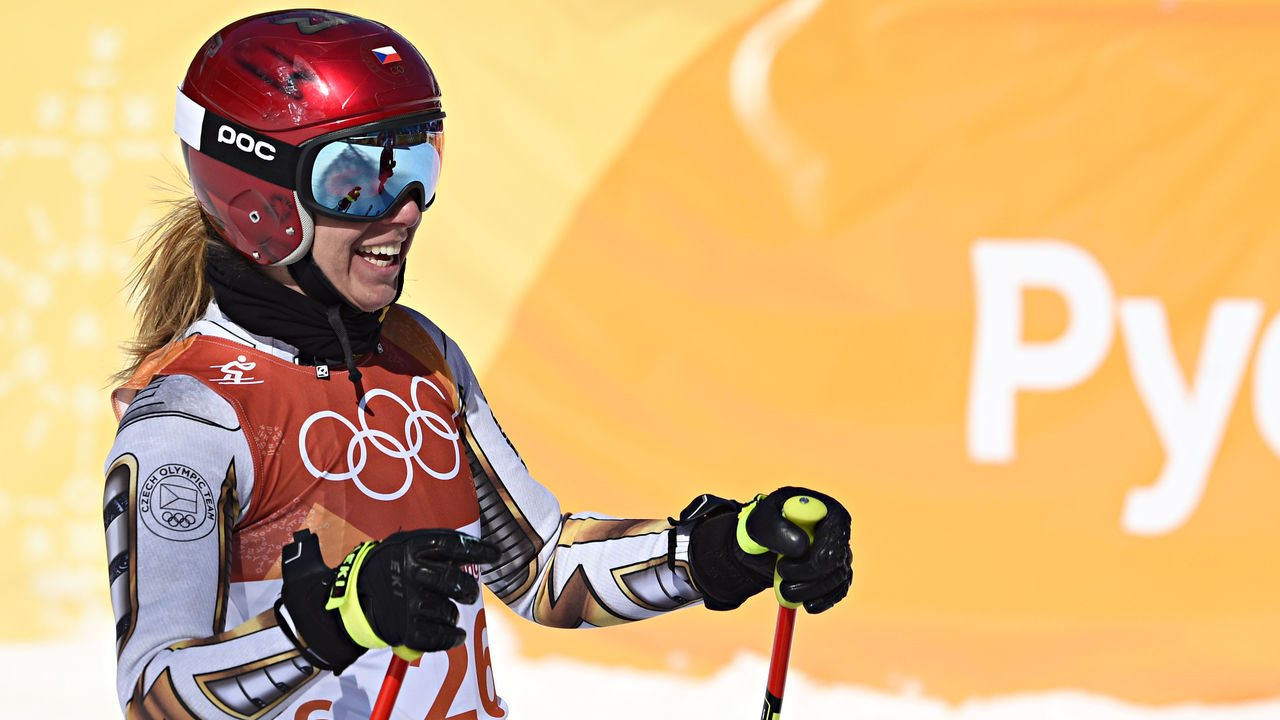
The look on Ester Ledecka's face after she crossed the finish line said everything: She couldn't believe what the clock was telling her. Neither could anyone else. The Czech snowboarder, 22, made history simply by partaking in an Alpine skiing event in PyeongChang. Nobody, herself included, it appeared, expected Ledecka to actually contend for a medal in the super-G; ranked 43rd in the world in the event, her run was such an afterthought that NBC actually cut away from live coverage prior to it. Oops.
Ledecka carved her way down the course to capture gold - on borrowed skis, no less - beating out the likes of Lindsey Vonn and defending Olympic champion Anna Veith, who, after seeing her time bettered by 0.01 seconds, looked equally stunned as she greeted the snowboarder at the bottom of the hill. Ledecka would, as expected, go on to make it a double by capturing gold in her actual sport, the snowboard parallel giant slalom. But it was her first triumph, a true Olympic stunner, that will be remembered. - Gianluca Nesci
U.S. droughts finally end
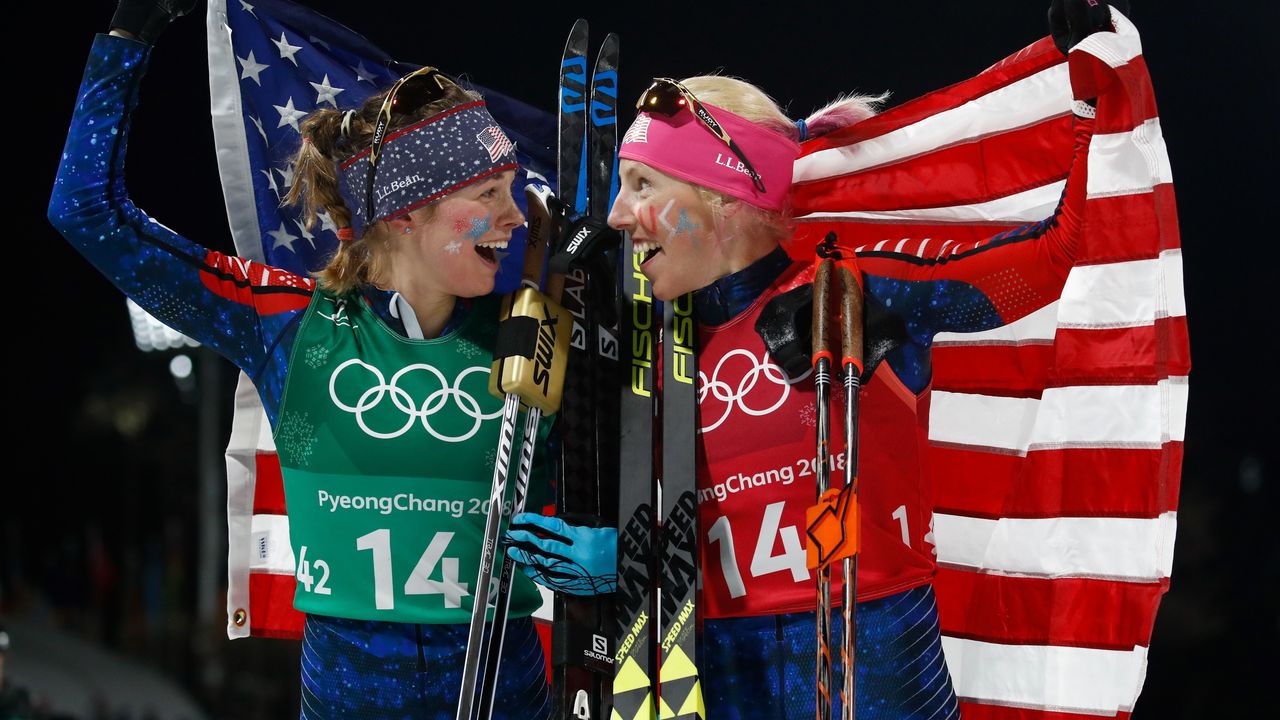
PyeongChang 2018 is where U.S. droughts came to an end. Despite the country's shortcomings in South Korea - as the U.S. fell short of its expected medal haul - there were a number of events in which Americans triumphed to end years of disappointment. The penultimate day of competition was highlighted by the U.S. winning gold in men's curling for the first time. Team Shuster's victory followed two memorable days, as Jessie Diggins' frantic finish in cross-country skiing helped seal the country's first medal in the event in over 40 years, a gold. Meanwhile, the U.S. beat Canada in dramatic fashion a day later in the women's hockey final to end a 20-year drought. - Gordon Brunt
Germany's Cinderella run to men's hockey final
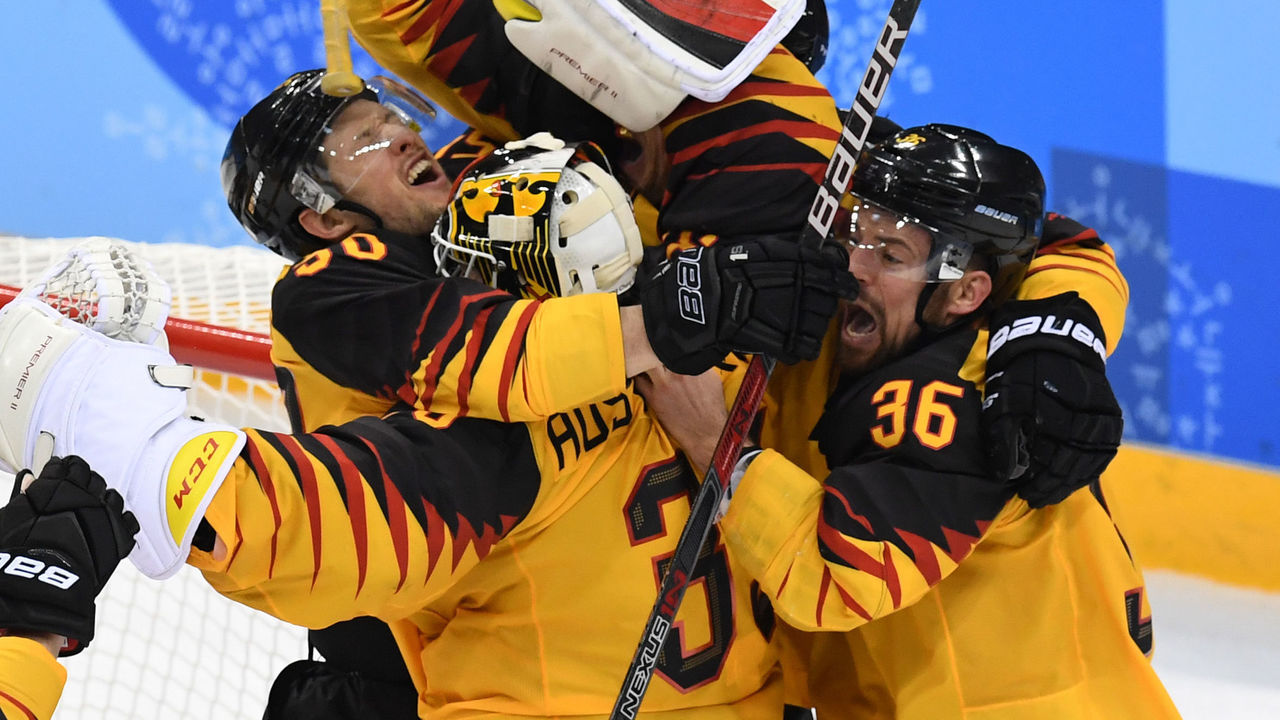
Although it was the most uncertain men's hockey field in nearly two decades, few could've expected Germany to topple numerous superpowers en route to the gold medal game. That's precisely what it did, however, emerging as one of PyeongChang's best stories.
Who would've guessed the Germans had a flair for the dramatic? After a mediocre showing in the group stage, Germany topped Switzerland in overtime, setting up a date with top seed Sweden. After blowing a 3-1 lead, Germany pulled off another overtime miracle, then went on to run Canada off the ice in a 4-3 win, a scoreline that doesn't reflect their dominance.
It may have not culminated in a gold medal, but Germany took the Russians to the brink and shook up the world of men's hockey in a single bound. - Arun Srinivasan
Kim, White lead U.S. halfpipe dominance

Chloe Kim came to PyeongChang as arguably the most hyped U.S. team member, and the 17-year-old wunderkind didn't disappoint. Kim obliterated the competition in the halfpipe, claiming gold before she even set foot on the course for her final run. Not content to coast to the finish, she took a victory lap for the ages, scoring an absurd 98.25 that left her adoring crowd in awe. It wasn't just her dominance on the track, as Kim's "California cool" personality was on full display as she tweeted about food between her runs.
If Kim is the new big thing in snowboarding, Shaun White would qualify as the grandfather of the sport at age 31. While that may not hold true in most professions, the fact no man over 25 had won an Olympic halfpipe medal shows the remarkability of his gold. The legendary snowboarder somehow still goes higher than anybody else in the field, and now has three gold medals in the event. His first came in 2006, showing just how long White has dominated a sport that often treats its elders very harshly. - Dane Belbeck
Virtue and Moir define Olympic greatness
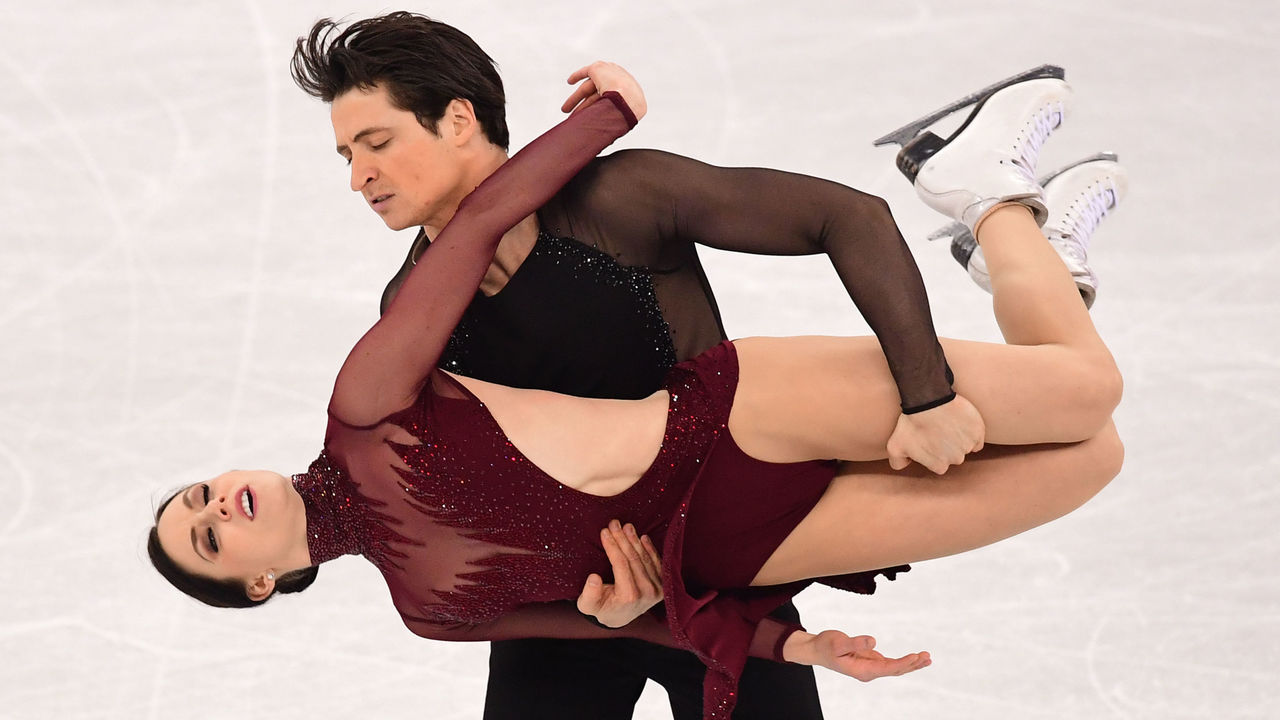
It seems unfathomable that Canada surpassed its medal count from Vancouver 2010 without any from the men's and women's curling rinks. It's equally difficult to come to terms with both hockey teams failing to bring home a gold medal, with one painful defeat coming at the hands of the Americans. Canada, though, can rest easy knowing it has the two of the greatest athletes the Winter Games have ever known.
Watching Tessa Virtue and Scott Moir skate their way to history in PyeongChang was a privilege, an honor, and won't soon be forgotten. Winning their third gold medal, and fifth in total, en route to becoming the most decorated figure skating pair in history is one thing, but Virtue and Moir should be most remembered for their sheer elegance and decency both on and off the ice. Together, they are the epitome of Olympic - and Canadian - greatness. - Lucas Casaletto
Curling gets flipped on its head
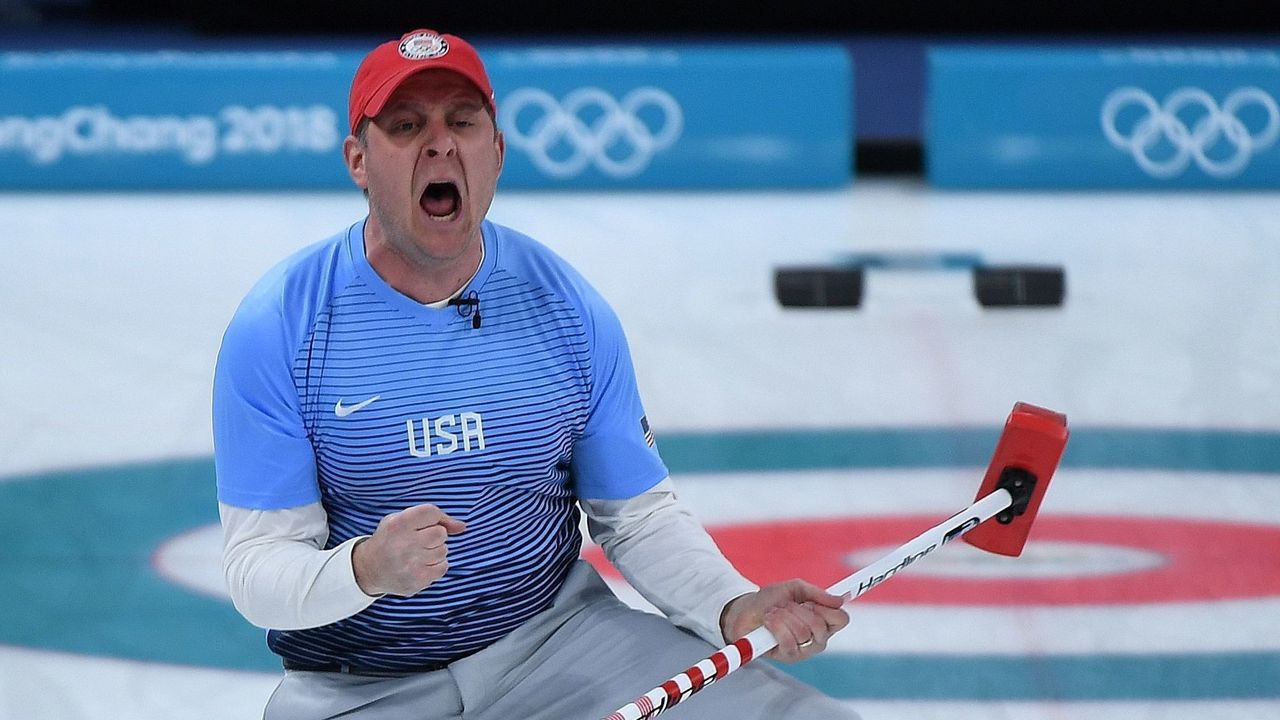
There are a few things we've come to expect with Olympic curling since its inception in 1998: the Canadian teams sit near or at the top of the podium, while the U.S. teams struggle just to find relevance. Over the five previous games, Canada had claimed 10 medals, one in every event, while the U.S. had a single bronze in the men's tournament in 2006.
All that history went out the window in PyeongChang.
After Canada started with an expected gold in mixed doubles - an exciting curling variation that was a new event in 2018 and got the games off to a thrilling start - things fell to pieces. Rachel Homan's rink started with three straight losses and became the first Canadian team to fail to make the medal round. Kevin Koe's squad fared better, but a surprising loss to their American counterparts in round robin play - a first ever in Olympic competition - was a sign of things to come.
Koe and Co. lost again to Team Shuster in the semifinal and went on to drop the bronze medal match to Switzerland, leaving the Canadian men without a medal as well.
On the other hand, the American men were the surprise of the tournament. Despite rocky showings in both 2010 and 2014, Team Shuster was able to earn the right to represent the U.S.A. at the Olympics yet again and suddenly became among the biggest stars. Whether it was Matt Hamilton's resemblance to Super Mario or pep talks from Mr. T, Team Shuster brought the fun to the games, and their shocking gold medal was the perfect encapsulation of a couple of crazy weeks on the ice. - Mike Dickson
New faces included on the global stage
“It’s important to me that little girls and boys see someone that looks like them, talks like them, has the same culture as them, has crazy curly hair and wears it natural, has brown skin-included in different things in this world” Jazmine Fenlator-Victorian #PyeongChang2018 pic.twitter.com/9vfJ0FK1wL
— Jamaica Bobsled Team (@Jambobsled) February 10, 2018
Every Winter Olympic cycle produces new tales of athletes from farflung temperate locales striving for greatness on the slopes, rinks, and tracks. In PyeongChang, there seem to be more fish-out-of-water stories than ever before: alpine skiers from Eritrea, Iran, and Madagascar; skeleton athletes from Ghana and Nigeria; and yes, an occasionally shirtless Tongan cross-country skier. These athletes are less and less the exception than a new standard of global inclusion. If there was one moment that captured the importance of their participation, it was what Jamaican bobsledder Jazmine Fenlator-Victorian said in the clip above. - Andrew Joe Potter
New hope for Korean reunification
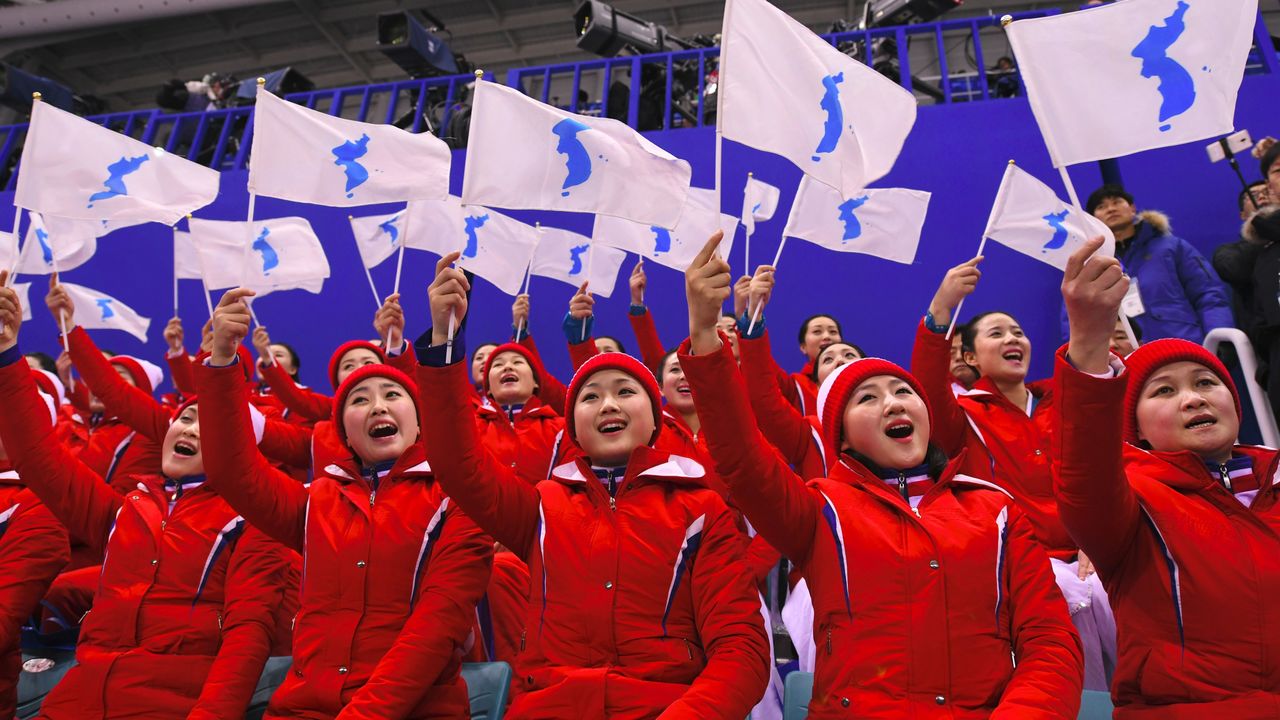
PyeongChang's Olympics might've done more to advance the cause of reunifying the Koreas than any event in history. Fears of a nuclear standoff evaporated as North and South Korea not only marched together in the opening ceremony, but competed as one in women's hockey and, most importantly, discussed a historic meeting between leaders in Pyongyang. The true legacy of these Winter Games might lie not in what was accomplished in the snow and ice, but the melting of decades-old tensions. - David P. Woods
Zagitova, Medvedeva, and a battle for the ages
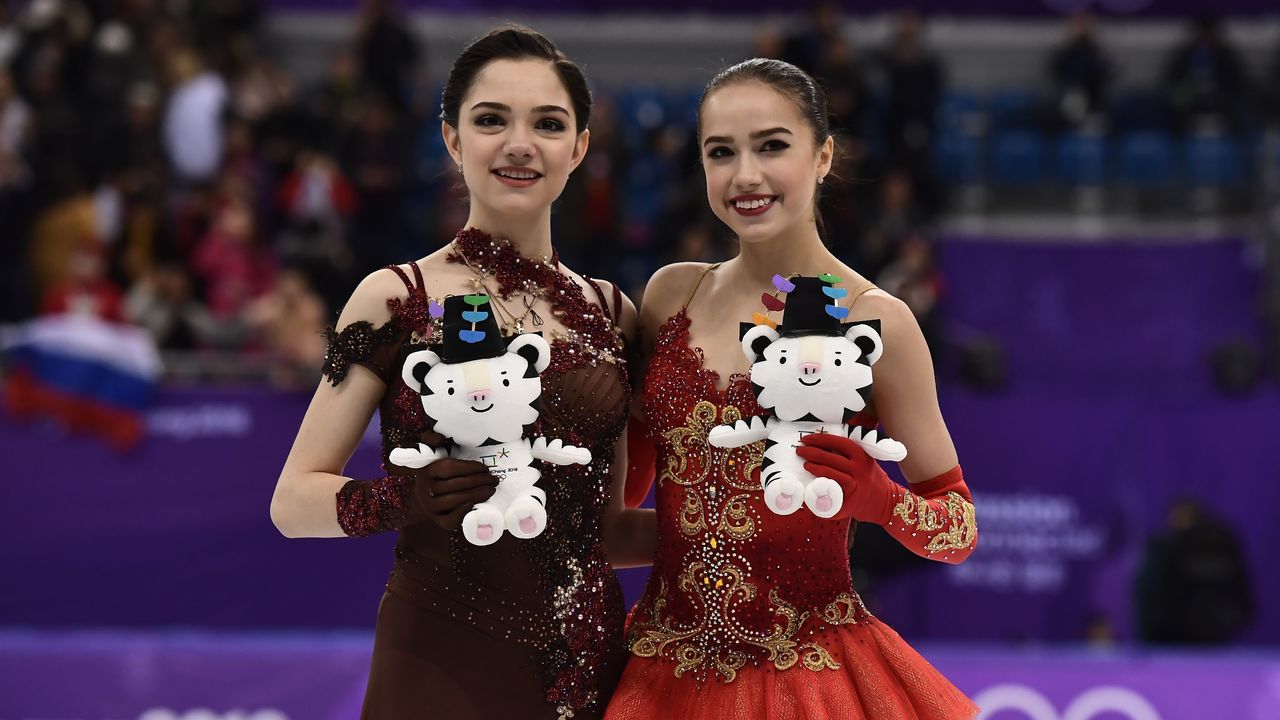
Rivalries don't always deliver. In Olympic events when athletes don't compete side-by-side, directly against their peers, it's easy to miss out on the drama we're promised. This was different, though. Russian figure skaters Evgenia Medvedeva, 18, and Alina Zagitova, 15, were billed as teen titans who would light up South Korea when they battled for gold. Did they ever.
Medvedeva, who had dominated women's figure skating since she arrived on the senior circuit in 2015, produced a brilliant, evocative performance to the soundtrack of 2012's "Anna Karenina" - complete with the tragic ending, in which she mimed throwing herself in front of a train. Medvedeva showcased her vaunted ability to combine artistry and storytelling with the power and grace of an elite jumper. And, to the dismay of many, it wasn't enough. Zagitova, who burst onto the scene and bested her Russian teammate at the 2018 European Championship in January, just prior to the Olympics, completed jump upon jump upon jump with surgical precision, strategically using figure skating's scoring system to her advantage by backloading her program - with conventional wisdom suggesting your legs tire later in the skate, a 10 percent bonus is added to the base value of every jumping element performed in the second half of the program. When the dust settled, Zagitova had beaten her elder by a mere 1.31 points, becoming the second-youngest Olympic gold medalist in women's singles, after Tara Lipinski.
Medvedeva: I will take you on an emotional journey that ends with me getting hit by a train
— kang (@jaycaspiankang) February 23, 2018
Zagitova: I’ll just do all my jumps in the last twenty seconds Bc they are worth more points then who cares about the journey
I DEMAND JUSTICE
Alongside the Canada-U.S. clash in women's hockey, this was the marquee tug-of-war for gold in PyeongChang. The visceral battle for the ages, one that will be the subject of arguments in the world of figure skating for some time, more than lived up to the hype. - Nesci
Bloemen epitomizes Canadian dream
The moment TJ Bloemen realized he's got gold. First Canadian men's medal on the 10k since 1932 Lake Placid. cc @bruce_arthur @ArashMadani @tsnjamesduthie pic.twitter.com/fZqgpAyqD9
— Remko Rinkema (@RemkoRinkema) February 15, 2018
Oddly enough, the athlete that made Canadians proudest of their nation lived the first 27 years of his life in the Netherlands. Ted-Jan Bloemen’s never-give-up attitude and exemplification of how much immigrants have shaped the country filled Canadians’ hearts with pride.
After failing to crack the vaunted Netherlands speedskating team headlined by multi-time gold medalist Sven Kramer, Bloemen moved to Canada in 2014, not only to help his chances of making the national team, but to embrace the country in which his grandfather was born. Since moving to the Great White North, Bloemen broke Kramer’s world records in the 5,000 meter and 10,000 meter events. He came to PyeongChang with clear goals of showing the Dutch team they made a mistake by not giving him a chance and to conquer the great Kramer. Bloemen fell short of taking down Kramer in the 5,000, coming away with a silver medal, but the 10,000 was the main event. Kramer, the most decorated male speedskater ever, had never won top prize in the 10,000 meter, the only Olympic gold missing from his collection.
Bloemen brought his "A" game to the long race, setting an Olympic record as he bested his former countryman for 10,000-meter gold. - Mitch Sanderson
(Photos courtesy: Getty Images)